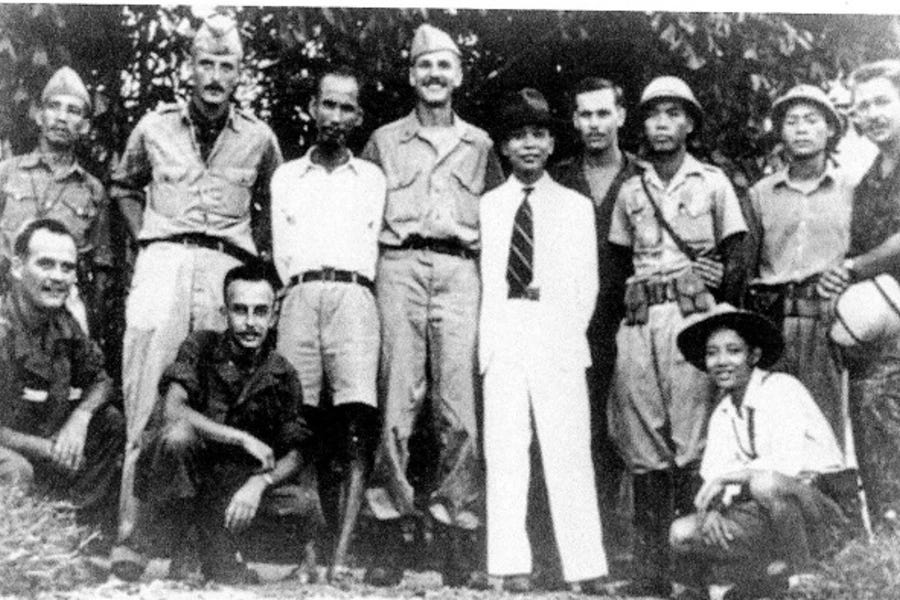Communist Revolutionary Ho Chi Minh Loved The Declaration of Independence
And America hated him for it.
This is the last article before the Zohran Victory sale ends. Take advantage to access premium articles, like this one, and support my work for a whole year for just $25. That’s 50% off! Thanks in advance for your support, and enjoy your holiday! — Joe

On September 2nd, 1945, the day the Japanese Empire surrendered to the Allied Powers and officially ended World War II, communist revolutionary Ho Chi Minh rose before the crowded Ba Dinh Square in Hanoi, Vietnam. Though Minh would soon become the United States’ most hated enemy, his opening remarks will ring familiar in American ears:
‘All men are created equal. They are endowed by their Creator with certain inalienable rights, among them are Life, Liberty, and the pursuit of Happiness.’
It is a profound, yet ironic, cosmic twist that the man who would soon battle the American Empire was inspired to do so by his future opponent’s founding ideals. Though the Vietnamese Declaration of Independence didn’t match its American inspiration word for word, it wasn’t for a lack of want. According to U.S. Army Major James Patti, a liaison to the Viet Minh, neither he nor Minh could recall Thomas Jefferson’s exact phrasing, leading to slight variations. But Patti did correct Minh’s original draft, which had misplaced ‘Liberty’ before ‘Life.’ ‘Why of course,’ Minh responded when informed by the Major. ‘There is no liberty without life.’1
The use of iconic American language was neither a coy reference nor a ‘gotcha’ to his future American adversaries. Ho Chi Minh and the Vietnamese Communist Party (Viet Minh) saw their struggle for post-colonial self-determination as an extension of the enlightenment values that underpinned both the American and French Revolutions. The Declaration continues:


![r/HistoryPorn - 26 August 1945, Hanoi. Ho Chi Minh sends an offical delegation headed by Vo Nguyen Giap to welcome the American OSS mission to Hanoi. While the band plays the American National Anthem, Giap and his delegation join the author and the OSS team in saluting the American flag. [ 858 x 715] r/HistoryPorn - 26 August 1945, Hanoi. Ho Chi Minh sends an offical delegation headed by Vo Nguyen Giap to welcome the American OSS mission to Hanoi. While the band plays the American National Anthem, Giap and his delegation join the author and the OSS team in saluting the American flag. [ 858 x 715]](https://substackcdn.com/image/fetch/$s_!ZNJG!,w_1456,c_limit,f_auto,q_auto:good,fl_progressive:steep/https%3A%2F%2Fsubstack-post-media.s3.amazonaws.com%2Fpublic%2Fimages%2F1ab39e9e-042d-4ac8-aac1-4c3e5a6ade94_750x625.png)
